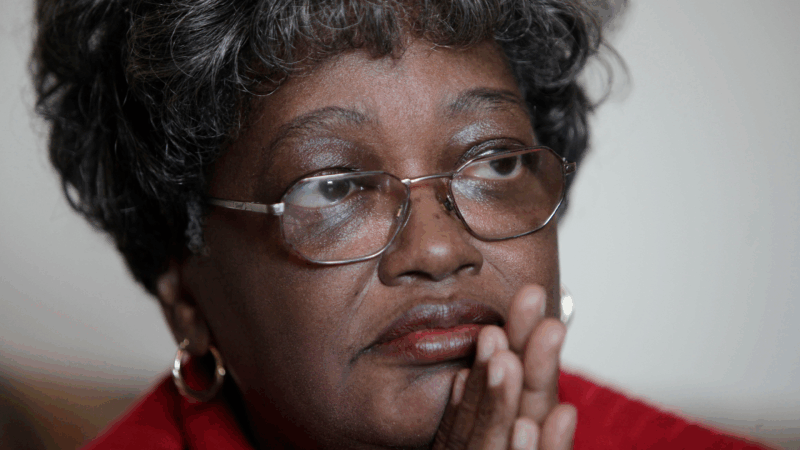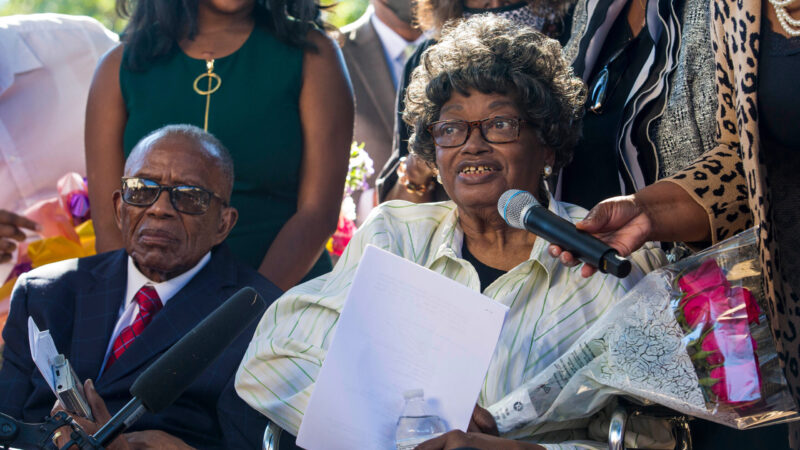Protests grow across the U.S. as people push against Trump’s mass deportation policies
NEW YORK — “ICE out of New York!”
Those were the words thousands of people chanted near the city’s Immigration and Customs Enforcement (ICE) field office, and throughout the streets of Manhattan Tuesday night as part of a series of nationwide rallies against President Trump’s immigration sweeps and the deployment of the U.S. military in California.
“There are many voices in my community that can’t be here today out of fear of what the administration is doing, so I want to be here for them,” 19-year-old Jeanet told NPR as she joined hundreds of other protesters in lower Manhattan Tuesday night.
She asked for her last name to not be included for fear of her safety. She said she wants to join the military, and that also played a role in her going to the protest.
“I feel like it’s more important for me, as somebody who is going to be part of the government, to voice my opinion and show that there can be people that are for the U.S., but still against what this administration is doing today,” Jeanete said.
Across the country, protesters also took to the streets in Chicago, San Francisco, and Seattle, Dallas and half a dozen other cities.
The Trump administration has vowed to arrest 3,000 migrants a day. To accomplish that goal, the Department of Homeland Security has conducted raids all across the country — from a parking lot in a Los Angeles Home Depot, to a Dominican neighborhood in Puerto Rico, to a meatpacking plant in Nebraska.
In New York City, the protest was peaceful. That’s a contrast with those in Los Angeles, where police and protesters clashed in some parts of town over the weekend sparked by immigration raids conducted by federal immigration agents.
The New York Police Department did not immediately reply to questions about how many arrests were made, but NPR reporters saw at least half a dozen people placed in handcuffs.
Paula Lopez, 66, said what’s happening is giving her flashbacks of when she was arrested by immigration agents in a New York factory in 1980.
“It hurts me to see families being separated, because I lived that,” Lopez, who came to the protest with her sister, told NPR in Spanish. “We come here to work … to progress — it’s not fair.”
Arfraz, a 43-year-old man from Queens, also remembers when decades ago ICE took away a family member. It was traumatizing, he said.
So, joining Tuesday’s protest felt important to him, especially for those he knows are scared.
“They can’t necessarily show up to rallies because they might get picked up by ICE, so I think we have to stand up,” said Arfraz, who asked NPR to not use his last name out of fear for his safety. “And those who are able to stand up have a higher and urgent responsibility to do it today.”
Claudette Colvin, who refused to move seats on a bus at start of civil rights movement, dies
Civil rights pioneer Claudette Colvin has died. She was 86. Her 1955 arrest for refusing to give up her seat on a segregated Montgomery bus helped spark the modern civil rights movement.
Claudette Colvin, who refused to move seats on a bus at start of civil rights movement, dies at 86
Colvin, at age 15, was arrested nine months before Rosa Parks gained international fame for also refusing to give up her seat on a segregated bus.
Republicans say Clintons risk contempt of Congress for not testifying on Epstein
House Republicans are seeking testimony as part of their investigation into convicted sex offender Jeffrey Epstein. The Clintons say they've already provided in writing what little they know.
FTC accuses AI search engine of ‘rampant consumer deception’
Federal officials say a company that operates hundreds of landing pages for AI answers is running an operation that has duped thousands of users, who were unable to stop costly monthly charges.
How Minnesota faith communities are resisting aggressive immigration operations
As immigration enforcement actions have ramped up in Minnesota, people of faith have been at the forefront of the response to ICE detentions and the killing of Renee Macklin Good by a federal agent.
‘My role was making movies that mattered,’ says Jodie Foster, as ‘Taxi Driver’ turns 50
Foster was just 12 years old when she starred in the 1976 film. "What luck to have been part of that, our golden age of cinema in the '70s," she says. Her latest film is Vie Privée (A Private Life).






